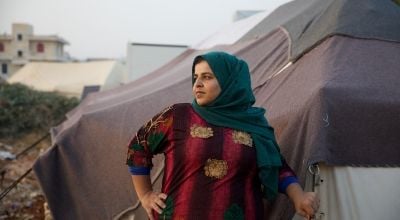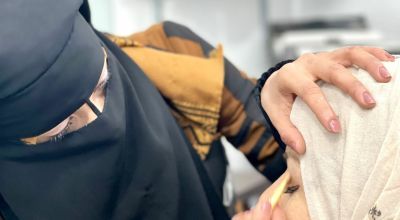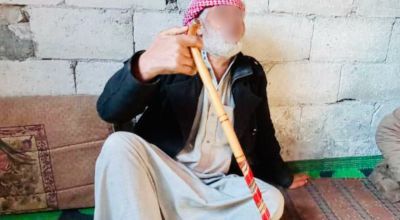
Read our 2023 annual report

Knowledge Hub
“Today, I am going to die” – A Syrian refugee’s story
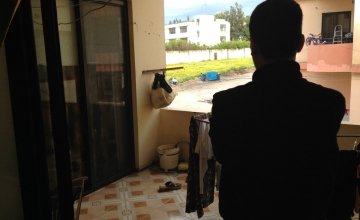
Ahmed’s hands hovered over the tea cups and he paused, sucking in his breath. When he spoke, it was barely above a whisper. “That’s when I surrendered myself,” he said. “to this certainty: today, I am going to die.”
Ahmed, 32, is a Syrian refugee living in northern Lebanon with his family. Just a few years ago, he was working at a prominent job and living in his own home with his wife and two children, busy, successful and satisfied.
The path to a sharp reversal in his fortunes is a story that is unique, dramatic and heartrending. Yet the themes are echoed by hundreds of thousands of other Syrian refugees. The ongoing civil war means four million people – the greatest population exodus since World War II – are seeking refuge outside of Syria’s borders, while another seven million are displaced internally. Many, forced from middle-class lives, are now trying to support their families on too-meagre aid.
Frustrated men, shamed by their new inability to care for their families, sometimes vented their rage at home. To help the refugees cope, Concern Worldwide initiated a ground-breaking programme in Lebanon, creating 45 men’s groups and empowering them to take back control, develop pride and build a new community of support.
“We started to know each other,” said Ahmed, who led one of the groups. “Then we started to trust each other. We began to talk about family issues and ask each other’s opinions. The sessions went deeper and deeper. We began to shine a light on violence against women, and early marriage.
“In all of us, something changed 180 percent. A stone began to be lifted from our hearts. After these sessions, we could breathe again.”
Ahmed (his name has been changed for security reasons) shared with Concern the story of his long, harrowing journey a mere 45-minute drive from his former home to the refugee shelter in which he and his family now live.
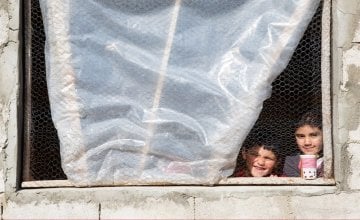
They were coming to get me
In early 2011, when rumours surfaced of teenagers being arrested and tortured in the southern city of Daraa for writing anti-government graffiti – events that marked as the start of the civil war – Ahmed simply didn’t believe it. He also thought protesting against his government was wrong.
But only weeks after the events in Daraa, he witnessed a clash outside a mosque in Homs. “Twenty people were killed that day. Blood was everywhere,” he said. “This was the first proof I had that our government was killing its own people.”
Confused, he quietly began to follow rebel publications, trying to understand what was going on within the country he loved. But he continued his work faithfully and kept his doubts private.
One day, a colleague from work called early in the morning and asked where he was. “On my way to the office, of course,” he said. But both the call and his colleague’s tone were unusual enough to put him on edge.
Waiting to catch the bus to work, he found himself lost in an internal debate: “I should return home immediately. Nonsense; I should go into the office to find out what is happening.” When he arrived at the office, his colleague told him the manager wanted to see him. “The manager had never asked to see me before. I felt even more afraid.”
He went into the manager’s office, and the manager said, “I just wanted to ask. How are you?”
“I’m fine,” Ahmed said slowly, deliberately.
“Good. Okay, that’s it. Go back to your office.”
Ahmed left, increasingly worried. “The whole atmosphere felt suspicious,” he said. “After ten minutes, I returned to my manager’s office. I said, ‘why are you asking about me?’”
“No reason. Just return to your office,” the manager said.
“At that moment, I had the chance to run away. I don’t know why I didn’t do it,” he said.
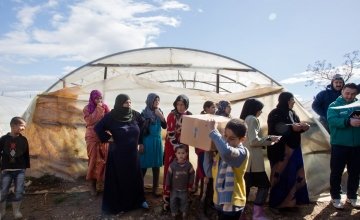
“You are dying today”
Instead, he returned to his office and sat at his desk, unable to concentrate. A colleague approached him and murmured in his ear: “What are you doing here? You aren’t supposed to be here. You are dying today.” He began trembling all over and got up to leave. He glanced out his window and saw six Toyota Prado jeeps, used by the army, pull up, and men armed with weapons emerge.
“At that moment, I knew they were coming to get me.”
He tried to leave his office, but a tall, armed man met him and grasped his hand tightly. “Hello, Ahmed. You’re Ahmed, aren’t you?” he said.
This is when Ahmed says he felt certain he would soon die. “But still I insisted: ‘Tell me why you are arresting me.’”
Instead of getting answers, he was blindfolded and carted to a prison in central Damascus. He was held for about six weeks and tortured, as were others – the bodies of those killed during “questioning” were placed in a corner of the prison – but he skipped over that quickly to tell an interviewer: “Don’t think of – they beat children.”
“I told him it would be okay soon”
Ahmed closed his eyes for a moment before continuing. “One child I will never forget. He was a boy, seven years old, a great boy. They brought him in carrying his backpack. They put a metal choke around his neck and the whites of his eyes turned so red. They said he was arrested for protesting the government. I asked him if it was true.”
“I don’t know what you are talking about,” he said. “What does ‘government’ mean?”
“I told him everything would be okay soon. Just hold on,” Ahmed said. “But I don’t know if that boy made it out.”
He lost track of days but now knows that it was about six weeks before he was taken to court and informed that he’d been arrested for anti-Syrian activity for watching an anti-government media outlet. The judge was a Sunni Muslim.
“He said this charge should be heard in another court, not his, and that I should return home and would receive notice within days to return. He told me that I must not leave my home while waiting for the notice, and then he said, ‘You are free to go until your trial.’ But though his words said one thing, his eyes said another. I could see he was telling me to run away.”
Ahmed arrived home ill, thin, weak, “almost dead,” he says, and his wife concurred. “He didn’t even know where he was,” she said. “He was in shock, and he had beating marks all over his body.”
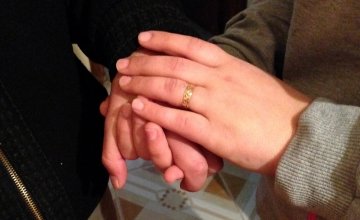
Trip to Lebanon: “I saw war”
A few days later, he left his home and headed for Lebanon. “I’m only a 45 minute ride from my home, but I was walking for eight days to avoid being captured,” he said.
“In those eight days, I saw death, I saw bombings, I saw tragedy. In those eight days, I saw war.”
Once he arrived in Lebanon, he sent for his family, but he said he knew he had psychological issues. He was constantly afraid, constantly angry, confused about his and his family’s future.
He heard about Concern’s programme to provide psychological support to Syrian refugee men and reached out, asking if he could join one of the groups. Concern suggested supporting him in starting a new group and he did, approaching one-by-one his new refugee neighbours.
Meeting weekly in sessions which included videos, guest speakers, worksheets, and discussions on Quranic guidelines, the men – 25 per group – weighed refugee community priorities and discussed how to gain power and self-worth while focusing on the principals of self-empathy, empathy for others and honest self-expression – methods of non-violent conflict resolution developed by Marshall Rosenberg.
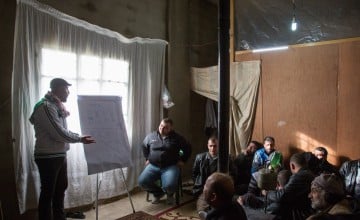
At the end of the 12 weeks, they also received $1,000 to invest in a project that would benefit the entire community.
“Before, I never even thought about our treatment of women. I never asked about my children,” Ahmed said.
“Being a refugee is something very hard. But it made something inside us that is very beautiful. A lot has changed and we have lost a lot. Maybe, though, we are stronger now.”
Donate now
We need your support to reach more families affected by poverty, conflict or disaster. Please donate today.



